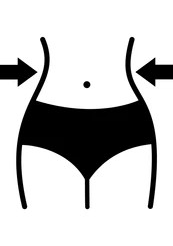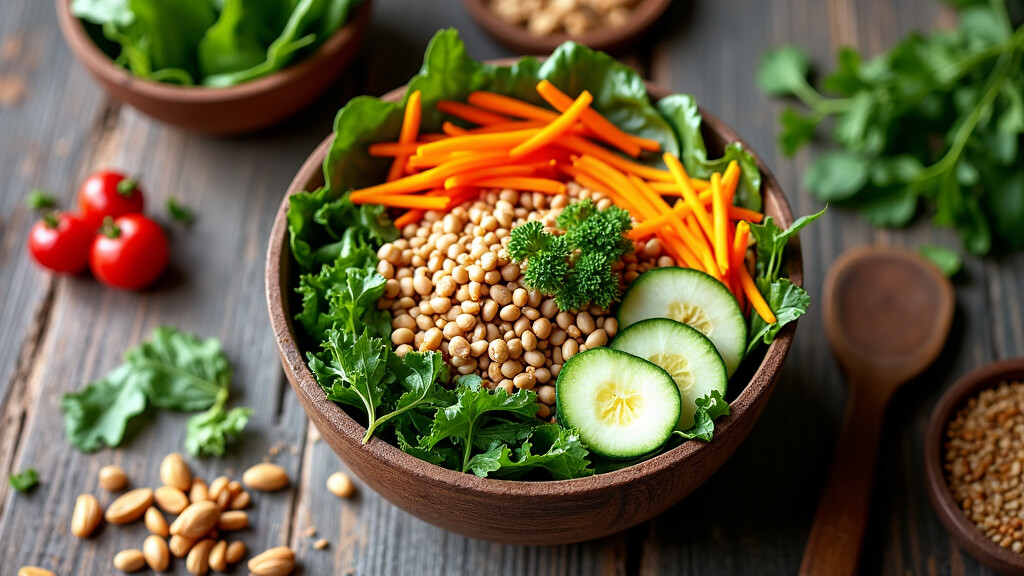Switching to a vegetarianfriendly diet is a pretty smart move if you’re hoping to lose weight and stay energetic. I’ve seen plenty of friends and readers try it, not just for the obvious health perks, but also because it’s easier on the planet. Still, figuring out the best way to eat vegetarian for weight loss can be a puzzle. Some people end up eating too many carbs or processed foods, and that can actually slow down progress. So, I pulled together everything I’ve learned and researched to make vegetarian weight loss as simple, straightforward, and tasty as possible.
Why Go Vegetarian for Weight Loss?
Plenty of research backs up the idea that plantforward diets help with weight loss. Eating lots of fiberrich veggies, beans, and whole grains means you’re likely to take in fewer calories overall. I find that I stay fuller, longer, when my meals are built around plants. That’s a big win if you’re trying not to snack all day.
Vegetarian diets often give a boost to heart health, help manage blood sugar, and reduce risks tied to obesity. According to the National Institutes of Health, people sticking to plantbased eating patterns often have lower body mass indexes and healthier cholesterol levels compared to meat eaters. Obviously, results vary based on food choices, but the potential is there for real improvement.
Core Strategies for Losing Weight on a VegetarianFriendly Diet
Eating vegetarian sounds simple, but losing weight on a plantbased diet takes a bit of planning. Here are a few tactics I always suggest if you want solid results:
- Focus on Whole Foods: Fruits, vegetables, beans, lentils, nuts, seeds, and whole grains pack loads of nutrients and keep you satisfied.
- Watch Out for Processed Veggie Foods: It’s easy to go overboard on veggieburgers, cheese, and mock meats. These can be high in calories and fat, so I use them as special treats, not daily staples.
- Keep an Eye on Portions: Healthy foods can still lead to weight gain if you’re not watching portions, especially with nuts, oils, and grains.
- Plan Your Protein: Getting enough protein helps with muscle retention and keeps hunger in check. I rely on beans, lentils, eggs, tofu, tempeh, Greek yogurt, and proteinrich grains like quinoa.
How to Build Filling Vegetarian Meals
Balanced meals make a huge difference for losing weight without feeling starved. I always try to check off the following at every main meal:
- Fiber: Load your plate with fibrous vegetables such as broccoli, carrots, cauliflower, spinach, bell peppers, kale, and zucchini. Fiber helps regulate appetite and keeps digestion on track.
- Protein: Add a plantbased protein to every meal for lasting fullness, like black beans, chickpeas, edamame, cottage cheese, or eggs.
- Healthy Fats: Avocado, nuts, seeds, and a drizzle of olive oil help you stay full without excess calories.
- Whole Grains or Potatoes: A palm-sized portion of brown rice, oats, farro, or roasted potatoes adds slow-burning energy.
I’ve found that prepping grainbowls, hearty soups, stirfries, and loaded salads is a great way to make sure every meal is satisfying. They’re customizable and easy to portion for lunches or quick dinners.
Top Vegetarian Foods That Support Weight Loss
Certain vegetarian foods are especially useful if you’re aiming to lose weight since they’re low in calories and high in nutrients. Here are the go-to options I keep on hand:
- Leafy greens: Spinach, kale, collards, arugula, and lettuce bulk up meals without too many calories.
- Cruciferous veggies: Broccoli, cauliflower, Brussels sprouts, and cabbage serve up fiber, vitamins, and compounds thought to help control appetite.
- Legumes: Beans, lentils, and chickpeas are surprisingly filling, and you can add them to anything from soups to tacos.
- Berries: Strawberries, blueberries, and raspberries feel like a treat, but they’re low in sugar and really satisfying.
- Greek yogurt: For vegetarians who eat dairy, plain Greek yogurt brings plenty of protein with fewer carbs and sugars than regular yogurt.
Including these foods regularly is a great way to steer your diet toward your weight loss goals, and since they’re versatile, you won’t get bored.
Common Pitfalls and How to Avoid Them
Even a vegetarian diet can go off track if you hit a few common roadblocks. Here’s what to watch out for and how I steer clear of them:
- Overdoing Starch and Cheese: Mac and cheese, veggie pizza, grilled cheese—they taste great but don’t help much with cutting calories. I try to balance them with more veggies and plant-based proteins.
- Giving In to Processed Foods: Chips, crackers, granola bars, and storebought veggiesaussages are often full of extra fats and sugars. Checking the label for hidden ingredients helps me decide if something is worth it.
- Not Drinking Enough Water: Fiber is amazing for weight loss, but it needs water to work properly. I keep a water bottle close at hand, especially when I’m eating lots of beans and whole grains.
- Skipping Meals: Skipping breakfast or other meals leads me to snack constantly later. Balanced, regular meals help me avoid this trap and keep my energy up.
How to Track Progress and Stay Motivated
No matter what kind of diet you follow, tracking your progress can feel rewarding. I don’t obsess about the scale, but I check in every couple of weeks. Sometimes, it’s more motivating to notice how my clothes fit or my energy levels than focus on the numbers alone.
Basic calorie tracking can help when you’re getting started. Plenty of apps make it a breeze to see your calories, protein, and fiber intake. Eventually, you get a sense for portions and what keeps you feeling your best.
I also suggest snapping progress photos and jotting notes about how your mood or sleep is improving over time. These small wins can keep you motivated in a way that the scale can’t.
Frequently Asked Questions About Vegetarian Weight Loss
Question: Can you lose weight on a vegetarian diet if you eat lots of carbs?
Answer: Yes, but it depends on the type of carbs and your portions. Whole-food carbs from fruit, veggies, beans, and whole grains support weight loss much better than bread, white rice, or sugary foods.
Question: Is it tough to get enough protein without meat?
Answer: It’s not hard if you plan a bit. Beans, lentils, tofu, eggs, yogurt, nuts, and seeds all contain plenty of protein. Including a few different protein sources at each meal usually does the trick for most people.
Question: What do you do when eating out or traveling?
Answer: I check menus ahead of time, look for options with plenty of vegetables, and I’m not shy to ask for simple, plant-based swaps. Even at fast-casual restaurants, I can usually get a salad or a rice bowl packed with veggies, beans, or tofu. Having a couple snacks with me also helps when I’m in a hurry or nothing veggie-friendly is available.
Setting Realistic Goals and Finding Support
Like anything healthrelated, weight loss is a process that takes patience. Setting small, achievable targets keeps me from losing motivation. For instance, focusing on adding an extra veggie to each meal or prepping healthy lunches ahead of time helps avoid slipping up when life gets busy.
It’s super helpful to find someone else also aiming to eat healthier—a friend, online community, or a family member who can check in and swap tips or recipes. Sharing the adventure makes it much more enjoyable and keeps you going during tough weeks.
Vegetarian Weight Loss Meal Ideas
- Chickpea and vegetable curry served over brown rice or quinoa
- Big salad bowl with mixed greens, black beans, avocado, cherry tomatoes, and sunflower seeds
- Veggie stirfry with tofu, broccoli, bell peppers, and carrots tossed with tamari and ginger
- Homemade lentil soup served with wholewheat toast
- Greek yogurt parfait layered with berries, walnuts, and a drizzle of honey
Rotating through a few tasty, reliable meals makes sticking with this eating style much simpler, and spicing things up with new recipes or switching up herbs and seasonings means you’ll always look forward to your meals.
Takeaways for Vegetarian Weight Loss
Easing into a vegetarian friendly weight loss plan is all about finding meals and routines that suit your life. Filling up on veggies, planning smart portions, and skipping processed snacks are the main strategies I swear by. It can take a bit to figure out what works best for you, but even the smallest shifts add up over time. With a bit of planning and some delicious recipes, vegetarian weight loss can definitely be a game-changer for your health and enjoyment of food.
For your Natural remedies Click Here>>

